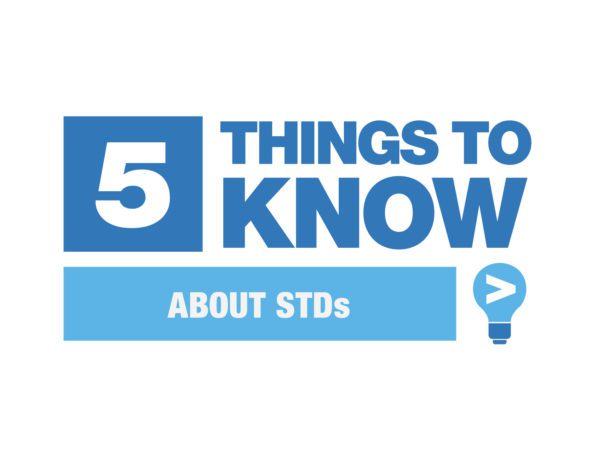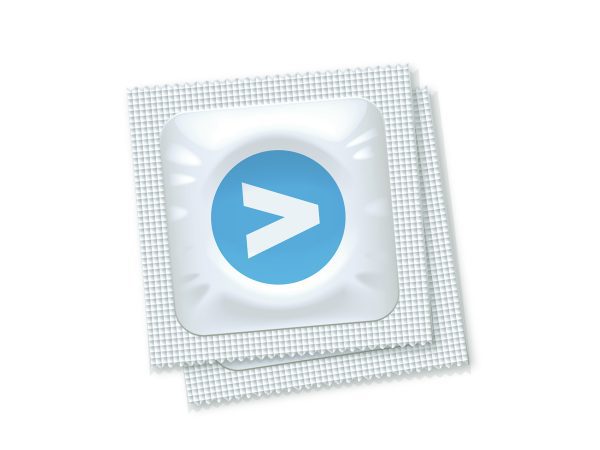Herpes
Herpes is a very common STD. It can cause sores on the genitals and/or mouth. There is no cure for herpes, but prescription medication can ease symptoms and lower the chances of passing the virus to others. Herpes can be painful, but usually does not lead to serious health problems.
Find STD Testing Near You
Click on a question below to learn more about herpes.
- How do you get herpes?
- What are the symptoms of herpes?
- What's involved in herpes testing?
- How do you treat herpes?
- What happens if herpes is not treated?
How do you get herpes?
There are two different herpes viruses: Herpes Simplex Virus type 1 (HSV-1) and Herpes Simplex Virus type 2 (HSV-2).
Herpes is transmitted from skin-to-skin contact when your genitals and/or mouth touch the genitals and/or mouth – usually during oral, anal or vaginal sex – of someone with the virus. Herpes can be passed even if the penis or tongue does not go all the way in the vagina, anus, or mouth.
While rare, a mother can pass genital herpes to the baby during vaginal childbirth.
Herpes is most easily transmitted when sores are open and wet, because fluid from herpes blisters easily spreads the virus. But herpes can also “shed” and be passed to others when there are no sores and the skin looks totally normal. Most people get herpes from someone who does not have any sores. When used consistently and correctly, condoms help protect against herpes and many other STDs.
What are the symptoms of herpes?
The most common symptom of genital herpes is outbreaks of itchy, painful blisters or sores on the vagina, vulva, cervix, penis, butt, anus, or inside of the thighs.
The first outbreak usually starts about 2 to 20 days after exposure to herpes, but sometimes it takes years for the first outbreak to happen. It usually lasts about 2 to 4 weeks. Even though the blisters go away, the virus stays in the body and can cause sores again. It is common to get repeat outbreaks, especially during the first year of having herpes.
The first outbreak of herpes is usually the worst. Repeat outbreaks are usually shorter and less painful. Most people with herpes get fewer outbreaks as time goes on, and some stop having them altogether.
Other symptoms may include itching, pain around the genitals or having trouble peeing. If genital herpes is caused by HSV-2, there may also be flu-like symptoms, such as swollen glands, fever, chills and aches.
Usually, oral herpes is less painful than genital herpes and doesn’t make you feel as sick. Oral herpes causes sores on the lips or around the mouth – called cold sores or fever blisters.
Cold sores last a few weeks and then go away on their own. They can re-appear in weeks, months, or years. Cold sores are usually harmless in kids and adults, but can be dangerous to newborn babies.
What's involved in herpes testing?
If there are blisters or sores, a healthcare provider may gently swab the area to take a fluid sample and test it. If there are no sores, but you are concerned you may have been exposed, a blood test may done. Herpes tests are not normally recommended unless you have symptoms.
To find free and low-cost STD testing near you, go to greaterthan.org/services.
How do you treat herpes?
There’s no cure for herpes, but prescription medications can ease symptoms, end outbreaks sooner, and lower the chances of passing the virus to other people.
You can also help ease the pain caused by herpes outbreaks by taking a warm bath, wearing loose clothing and putting an ice pack on the sores.
What happens if herpes is not treated?
Herpes can be painful, but it generally does not cause serious health problems like other STDs can.
Without treatment, you might continue to have regular outbreaks, or they could only happen rarely. Some people naturally stop getting outbreaks after a while. Herpes typically does not get worse over time.
The information on this page is adapted from the CDC and Planned Parenthood.
Getting Tested
HIV and other STD testing is available at most doctor’s offices and health clinics. Many health departments also offer testing. It’s fast, easy and most people pay little or nothing.

